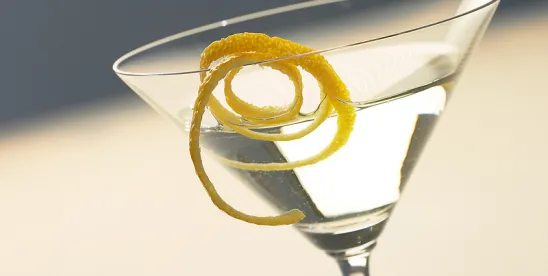When Act 86 of 2024 was passed in July, Pennsylvania manufacturers were able to preserve of the right of PA licensed distilleries to sell Ready to Drink Cocktail (“RTDC”) products directly to RTDC Permit Holders such as distributors and restaurant licensees. As often happens with new statutes, certain provisions caused uncertainty. For example, Act 86 did not explicitly provide for whether taxes must be paid when a Pennsylvania manufacturer sells an RTDC to a RTDC Permit Holder. The statute explicitly provides that RTDC Permit Holders must pay sales tax when buying from the Pennsylvania Liquor Control Board and can seek a credit for those taxes paid, but the statute was silent as to sales from PA Manufacturers. Fortunately, the Department of Revenue has now issued definitive guidance. This new guidance is located at: Ready to Drink Cocktail Permit Holders | Department of Revenue | Commonwealth of Pennsylvania.
The new guidance is a win for PA distillers and prevents double taxation of RTDCs sold by PA distillers. The new guidance confirms that Pennsylvania manufacturers are not required to charge sales tax to RTDC Permit Holders for resale to customers for off-premise consumption if the RTDC Permit Holder supplies the manufacturer with an executed exemption certificate at the time of purchase or within 60 days thereafter. The proper sales tax exemption form, REV-1220, can be found at Pennsylvania Exemption Certificate (REV-1220). Please note that if the RTDC Permit Holder buying from you does not provide an exemption certificate, PA Manufacturers are still required to charge sales tax and remit that sales tax as part of their own tax filings.
Additionally, if a PA Manufacturer has already charged sales tax to an RTDC Permit Holder, or does so in the future because they are not presented with an exemption certificate, the Permit Holder can still get a refund from the state if they charged a customer sales tax when they sold the RTDC product for off-premise consumption.
If the Permit Holder is purchasing the RTDCs to be sold at a restaurant for on-premise consumption, the Permit Holder should either pay sales tax to the PA Manufacturer, or, if they did not pay sales tax (because they presented a sale tax exemption), they must pay a “use tax” because the Permit Holder does not have to charge sales tax to customers who purchase RTDCs for consumption on their licensed premises. The reference to a use tax may be confusing to Permit Holders. However, it is the same 6% rate that the Permit Holder would have paid on the portion of their RTDCs from a PA Manufacturer that are to be sold for consumption on their licensed premises. RTDC Permit Holders who sell RTDCs for both on- and off-premise consumption may simplify matters by placing separate orders from PA Manufacturers for RTDCs they plan to sell for on-premise consumption and for those intended for on-premise consumption. This will enable the correct sales tax to be paid only for those RTDCs to be sold for on-premise consumption. Otherwise, RTDC Permit holders must internally track which inventory is sold for on-premise consumptions and pay the use tax on that portion of their order sold for on-premise consumption only. Again, this can lead to confusion, as the “use tax” amount for on-premise consumption is not shown on the customer’s receipt, but is imbedded into the price at the rate of 6% of the retailer’s purchase amount of those goods. The re-sale for off-premise consumption, however, is charged as “sales tax” at 6% of the consumer purchase amount, and that is shown on the customer’s bill.
Simply put, this Guidance puts PA Manufacturers on a level playing field with sales from the PLCB, because PA Manufacturers either do not have to charge sales tax (if an exemption certificate is presented) or the RTDC Permit Holder can seek a refund for any taxes paid. This avoids the situation where there is more tax on a product sold by a PA Manufacturer than if the same product was purchased from the PLCB.
As with all taxes, liquor licensees should make sure they are paying (or charging) the correct amount, but no more!




 />i
/>i
